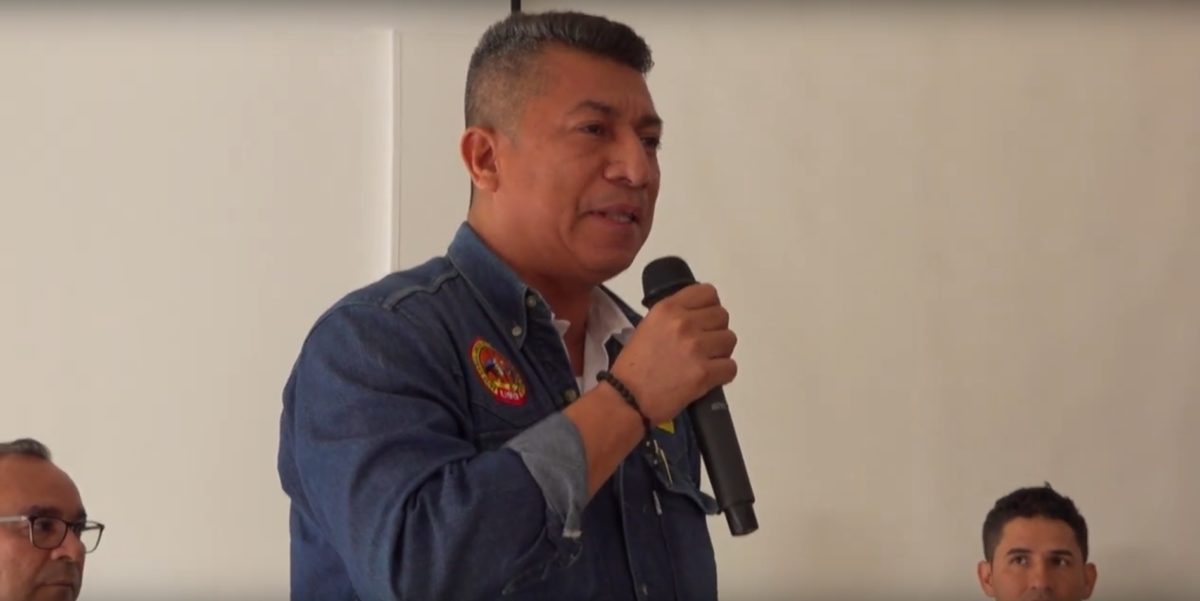On May 24th the Common Frontiers delegation organized a forum with representatives from various social movements in Colombia including activists and lawyers working with displaced populations and leaders from the Indigenous and labour movements.
The forum also included Electoral observers from Progessive International, Grupo Interparlamentario por la Paz, and Misión de Observación Electoral (MOE) who came together in an important exchange about the electoral environment & human rights situation in Colombia.
Common themes emerged amongst the various groups presenting. While identifying the overall crisis of legitimacy of the Colombian state in particular and of “democracy” in Colombia in general, presenters addressed the consequences of the unfulfilled agreements signed in the Peace Accords of 2016, the state’s failure to implement the constitution of 1991 and ongoing persecution and violence against social movements and any kind of public mobilizations.
With 21 million Colombians living in poverty in the country and many of those living in what the President of the Central Union of Workers (CUT), Francisco Maltes, called “a situation of brutal precarity.” This is particularly true in the countryside. Social movements are demanding changes to the current government’s extractivist, export-oriented economic model focused on providing a safe haven for international investors/transnational companies, many of whom are Canadian and are complicit in serious human rights and environmental abuses in the country.
A representative from the national Indigenous organization National Indigenous Organization of Colombia (ONIC), Gerardo Yumi, noted that in Indigenous communities alone, 3,000 leaders have been killed since the beginning of the conflict, 400 of those since 2016. There have been 63 attacks against Indigenous groups in 2022 involving 1,800 people.
All representatives flagged the importance of international accompaniment both during and after the election process. There are concerns around issues of mobility and safety of voters in paramilitary controlled territory. There are also concerns over intimidation from companies towards voters regarding their choice of candidate, suggesting that a loss of the right candidate could signal shutdowns and loss of jobs. Further concerns entail direct violence against social activists, human rights defenders and community leaders; stolen and/or “disappeared” votes; and tampering with the elections software.
Despite the fact that Colombians have never experienced elections without violence, intimidation and massacres, there is a cautious sense of hope at what many are calling “a historical moment” for Colombian democracy.
Across the political spectrum, there has been demand for change. In a country with so much poverty and inequality the demand for change has been reflected in mass mobilizations over the past couple of years. A young woman from the Peoples’ Congress stated: “You are here to witness our hope. Whatever happens, we will have to be ready to mobilize.”



